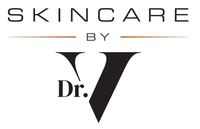Vitamin C - The Benefits

The benefits of vitamin C when it comes to our skin’s health are well-researched.
This makes vitamin C a popular ingredient in skin care products — especially when dealing with harmful UV exposure and the effects of premature aging.
Vitamin C is an antioxidant, known for fighting free radicals that cause inflammation and cellular damage. It also protects the skin and prevent signs of aging, it promotes healthy and youthful, glowing skin
Vitamin C accelerates the production of both collagen and elastin, which helps keep the skin plump and firm. In our youth, vitamin C levels are higher in the epidermis and dermis, but as we age, these levels deplete in our skin In addition, it’s further depleted by UV and pollution.
Vitamin C Skincare Benefits:
- Evens skin tone
- Brightens complexions
- Reduces dark spots
- Repairs damaged skin
- Improves appearance of fine lines and wrinkles
- Helps with preventing premature ageing
Did you know:
Vitamin C aids in reducing the appearance of hyperpigmentation and dark spots. It is a tyrosinase inhibitor, which helps reduce melanin production, resulting in a visibly brighter and more even-toned complexion. That’s why you will find vitamin C in virtually every hyperpigmentation cream or treatment.
When vitamin C reaches the dermis, it helps to boost collagen. Which is essential for any anti-ageing routine also.

Use the Correct Vitamin C:
There are different forms:
- Sodium Ascorbyl Phosphate. It’s got a pH of 6, it’s non-irritating, water-soluble (which means it works in the epidermis).
- Magnesium Ascorbyl Phosphate. It’s got a pH of about 6 to 7, approximately 60% of it is converted to L-ascorbic acid, which can then help stimulate collagen production.
- Ethyl Ascorbic Acid. It’s got a pH of 5 to 6.5 and it has an 80% conversion to L-ascorbic acid, it’s even more effective because it’s being converted to L-ascorbic acid, which then helps to stimulate collagen production.
- Ascorbyl Glucoside. It’s got a pH of about 5 to 8, and again, it’s hydrolysed to ascorbic acid.
- My all-time favorite vitamin C is Tetrahexyldecyl Ascorbate, which is used in my products. It’s fat soluble, which means it has a much better penetration into the dermis, which is where you’re going to be restoring collagen.
You’ll reap the most protective benefits by choosing the most optimal form of Vitamin C. It’s important that you choose a well-formulated serum, to ensure that the ingredients will amp up the positive effects, and it must be NAFE SAFE to minimise chances of irritation.
The Antioxidant Power Serum from the Dr Vanita Rattan Range is full of superhero ingredients, including my absolute favourite form of Vitamin C…
Tetrahexecyl Ascorbate - fat soluble vitamin C to stimulate collagen
alongside:
Silicones – softens and soothes skin
Retinily Palmitate – gentle form of vitamin A, which brightens skin and minimises wrinkles
Vitamin E – an antioxidant
Coenzyme Q10 – powerful antioxidant
Also, make sure to layer on your sunscreen for added skin protection, check out INZINCABLE.
This mineral sunscreen is loved by many worldwide and has an extensive range of key benefits:
- Maximum UVB/UVA (PA++++) protection
- Zinc Oxide Mineral Sunscreen, no chemical filters
- No 'white cast' - designed for Skin of Colour
- Contains MelashieldTM to help reduce hyperpigmentation
- Blue Light Protection
- Anti-Inflammatory, Anti-Aging, Anti-Pigmentation





















